Ukrainian Physicians Like Me Want to Get Back to Doctoring, but Barriers Are Many
Doctors whose careers were disrupted by war could help with dire healthcare shortages. Why is the road so costly and long?
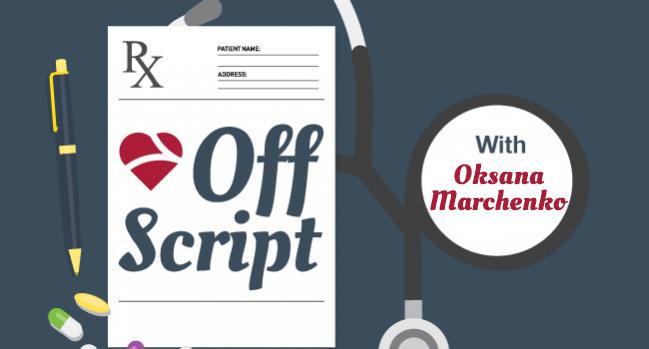
Cardiology has always been my passion. As a junior doctor in Ukraine, I was an idealist, sure that I could heal everyone regardless of their disease. In real life, sharp cliffs break the self-confidence of dreamers, which is a good thing.
I had spent 3 months in the cardiac ICU when my first patient died due to untreated critical aortic stenosis. For the past year, he had been hospitalized multiple times for this issue and refused the option of operative treatment, which was crucial in this case. I was shocked by this death and thought about quitting cardiology or even leaving medicine, but I stayed with it and love it even now.
My friend who is a philosopher told me many years ago: "We don't choose the books we want to read, but rather books choose us." I believe the same goes for our professions. When we decided to be doctors, we chose to undertake thousands of hours to learn new skills and knowledge, improving ourselves as doctors to make better decisions and find better solutions for our patients. This process is endless, especially in cardiology where you need to keep up to date with new devices, procedures, standards, and approaches.
Others before me have observed that medicine is both art and science. We build our professional knowledge like the artist with a paintbrush. We start with a pure surface, but day by day, month by month, we add new strokes, sometimes very bright and colorful, sometimes dark and sad, but over time it becomes a very personal and detailed canvas.
Life is unpredictable. One day, despite all the hours invested in career and caregiving, we might find that our sole priority is simply staying alive. Such was my story. When the war broke out in Ukraine, I had to decide whether to remain in the country under horrific conditions or leave to find safety. Those, like me, who decided to leave our country are not economic migrants but refugees: we left to try to stay alive and nothing more.
I arrived in the UK under a Ukraine Family Scheme and hoped, like a hundred thousand other Ukrainians, that my stay would be temporary and that the war would end.
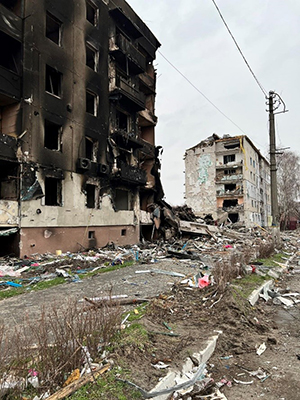
As time went on, many physicians like me explored what it would take to become a doctor in the UK: they learned that they would need to complete the language exams, PLAB 1 and 2, and to go for a nontraining position and start working in the National Health Service (NHS) as an earlier career step. This is strongly recommended so that overseas doctors take some time to understand the specifics of working in the NHS. Another route is through the Royal College exams, which are more suitable for doctors with enough experience in a specialty, who are aiming to gain higher positions in their professional field. However, it then comes down to Trusts and Royal Colleges, not the General Medical Council (GMC), to make a judgement on your level of qualifications and offer an appropriate position.
Both routes require time-consuming preparation and sufficient financial resources, and if you had not previously planned in advance for emigration, they are impossible to do in a matter of months.
The alternative is the International Sponsorship Scheme, but it is open only to doctors who “have engaged in medical practice for 3 out of the last 5 years, including the most recent 12 months.” We have—through no fault of our own—been unable to practice these previous 12 months. This gap in our work experience has not happened due to our desire to vacation, travel around the world, or spend more time with our families. No. It happened because war has taken over our homeland.
Finally, if you were a GP in your home country, the Certificate of Eligibility for GP Registration (CEGPR) is an alternate route to the GP Register in the UK, but again, this is not for specialists.
European countries, like Germany, Switzerland, and the Netherlands, have programs for immigrant doctors, including specialists, who want to rejoin the profession in their new country. They offer a doctor's assistant position after passing a language exam, allowing candidates to work in the healthcare system while preparing for the professional exams.
The UK does not have such a pathway. The NHS has, in the past, had a similar program, called the Medical Support Worker (MSW), suited to UK-based medically qualified doctors not currently registered with the GMC. The MSW program was created for certain regions in 2020 as part of the response to the COVID-19 National Emergency but is not currently nationwide, even as the UK health system continues to struggle with a dire shortage of skilled health professionals.
In March 2022, my friend, a successful pediatrician in Ukraine, fled the war and came to London with a 6-year-old daughter and her ailing mother. Back in Odesa she worked in two large hospitals, had more than 2,000 private patients, and had a Master of Public Administration degree in healthcare protection. She was regularly invited to television as an expert and interviewed for print media.
Here in the UK, she has struggled to find full-time work. She applied for a position as healthcare assistant, but never made it to the job interview stage, having been told she was “overqualified.” She has also tried to apply for nonmedical positions in the NHS with a higher rating (band 4-5) because she has a master's degree and good language proficiency, but here, too, she’s been rejected because of her lack of relevant experience in the NHS. In the last half year, she has sent over 60 applications but has been invited to only six job interviews. Finally, a few weeks ago, she found a healthcare assistant position in a hospital's admissions department.
My personal experience has been better, thanks to focusing instead on research. I am not only a trained cardiologist but also have done research work for my thesis at the Shupyk National Healthcare University of Ukraine, although the war disrupted my plans to defend my thesis (on the different markers and echo parameters in ischemic heart disease). I learned of the British Academy Programme for Ukrainian researchers, and, with the tremendous support of Julia Grapsa MD, PhD (Guy’s and St Thomas’ NHS Foundation Trust, London, England), I secured a position as a research fellow at King’s College London.
Many physicians like me have received support from different British organizations, including RefuAid, RAGU, as well as the Ukrainian Medical Association of the UK. And while I am very grateful for everyone's assistance, I believe there need to be other ways to return to our profession more swiftly, which would also be hugely helpful to the strained British healthcare system.
According to the website Statista, in 2020/2021, nearly 20,000 Hospital and Community Health Services doctors and more than 38,000 nurses have left the NHS. As of the first quarter of 2023/2024, the NHS faces an estimated 126,000 vacancies. In 2021, the Royal College of Physicians (RCP) census found a record number of physician jobs unfilled in England and Wales. Over half (52%) of the advertised consultant physician posts remained vacant. This percentage increased from 43% prepandemic to 48% in 2020, making it the highest rate since 2008. Out of the 52%, nearly three-quarters (74%) were unfilled due to a complete lack of applicants.
In July 2023, the government released its long-term workforce plan, which includes steps like reducing the length of medical degree courses from 5-6 years to 4 years. However, prospective medical students, understanding the problems in the NHS, may not be persuaded to join the profession. Another way for improvement is through physician associates who are following a 2-year course and may perform some of the doctor's tasks such as taking a patient's history, examining them, ordering basic investigations, and formulating management plans, although this pathway has also been criticized.
This leaves the question wide open as to how best to accommodate well-trained and passionate Ukrainian refugee doctors. Is gaining experience as a healthcare assistant really important for their careers? Why is the MSW program still open for overseas doctors in some areas but not nationwide? Why is it impossible to check the professional skills and knowledge of doctors who want to follow the Sponsorship Scheme when the gap in their clinical practice is not their personal choice? These endless obstacles can’t help but discourage us and influence our decisions, potentially leaving us out of the healthcare professions we worked so hard to join. We still try to find better ways to return to our profession as the main passion in our lives, but no one knows how many doctors will be willing to start all over again with a fresh, clean canvas.
Off Script is a first-person blog written by leading voices in the field of cardiology. It does not reflect the editorial position of TCTMD.
Oksana Marchenko, MD, is a noninvasive cardiologist with a special interest in heart failure secondary to coronary and valvular heart…
Read Full Bio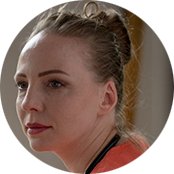

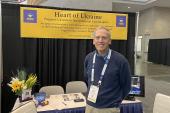

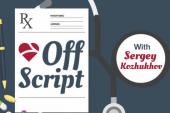
Comments